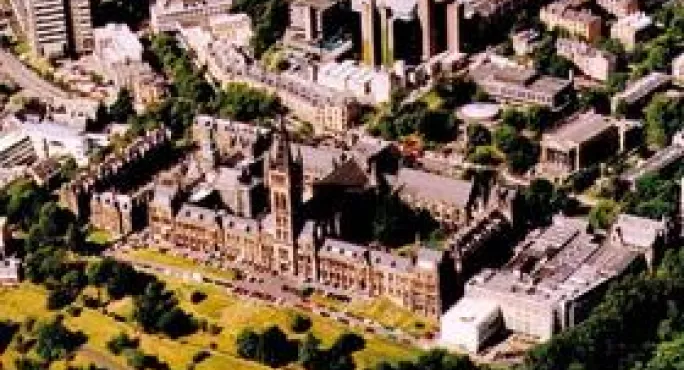Universities become CfE-friendly

Two of Scotland’s ancient universities have revised their admissions procedures to bring them into line with Curriculum for Excellence.
The University of Glasgow this week followed the example of the University of Aberdeen in announcing more flexible arrangements to accommodate the diverse curriculum patterns now being offered in the S4-6 senior phase of secondary.
Heads have warned in the past that the stringent entry requirements to high-tariff courses like law, medicine or dentistry - such as all Highers to be gained in a single sitting and over a single year - would disadvantage those schools which adopted more creative curriculum structures under CfE.
But Aberdeen and Glasgow, two of Scotland’s most sought-after higher education institutions, have now acted on national guidance that the sector respond positively to CfE.
Both universities have announced that students who take a Higher or Highers in S4 will not be penalised.
“We regard Highers achieved in S4 and S5 as being from one sitting,” said the University of Aberdeen in a statement in December.
The University of Glasgow has adopted the same position this week, announcing: “Highers may be sat in either S4 or S5 - we do not differentiate between applicants who have sat all their Highers in one sitting (S5) and those who have achieved over two sittings (S4 and S5).
“Any combination of Highers across the two years is acceptable. Applicants will not be positively or negatively regarded based on the profile of Highers over the two years. The level of attainment by the end of S5 is all that is regarded.”
Students who choose to resit a Higher in which they achieved a grade C or below in their first sitting will be required to achieve an A grade in their second sitting; if the Higher at C was achieved in S4, the resit rule does not apply, even if the resit is in S6, said the University of Aberdeen.
Aberdeen also specifies that a minimum number of three Highers or Advanced Higher subjects must be studied and presented for exams in a single year, whether S4, S5 or S6.
“This is to ensure that students are prepared for the academic rigour they will find at university,” it adds.
While Aberdeen and Glasgow have adopted a number of common admissions policies, they diverge in some areas: Aberdeen states categorically it does not “double-count” Highers and Advanced Highers in the same subject. Thus, it classes a B grade at Advanced Higher as equivalent to an A grade at Higher, so Advanced Highers can be used to upgrade a Higher. Glasgow, on the other hand, states: “Many, but not all, of our courses allow `double-counting’ of Advanced Highers and Highers, even where the applicant has achieved an A grade at Higher level.”
Jim Thewliss, a past-president of School Leaders Scotland and headteacher of Harris Academy in Dundee, described the statements from both universities as “very useful”, because the cohort now moving through the senior phase were reaching a stage where they required advice on future educational pathways.
On moves to give parity to Highers gained in either S4 or S5, he said: “It is very encouraging to know that a Higher is a Higher, not a two-year Higher.”
elizabeth.buie@tess.co.uk
SHIFTING GROUND
The Scottish Baccalaureate is not a recognised entry qualification at present, but seen simply as very useful grounding and preparation for university-level study.
However, the University of Glasgow suggests that it is preparing to depart from that position, saying it is “currently in the process of considering how they (Scottish Baccalaureates) might be used in offer-making to appropriate courses”.
Photo: The University of Glasgow is taking a more flexible approach with the curriculum
Original headline: Universities take CfE-friendly tack on admissions
Keep reading for just £1 per month
You've reached your limit of free articles this month. Subscribe for £1 per month for three months and get:
- Unlimited access to all Tes magazine content
- Exclusive subscriber-only stories
- Award-winning email newsletters